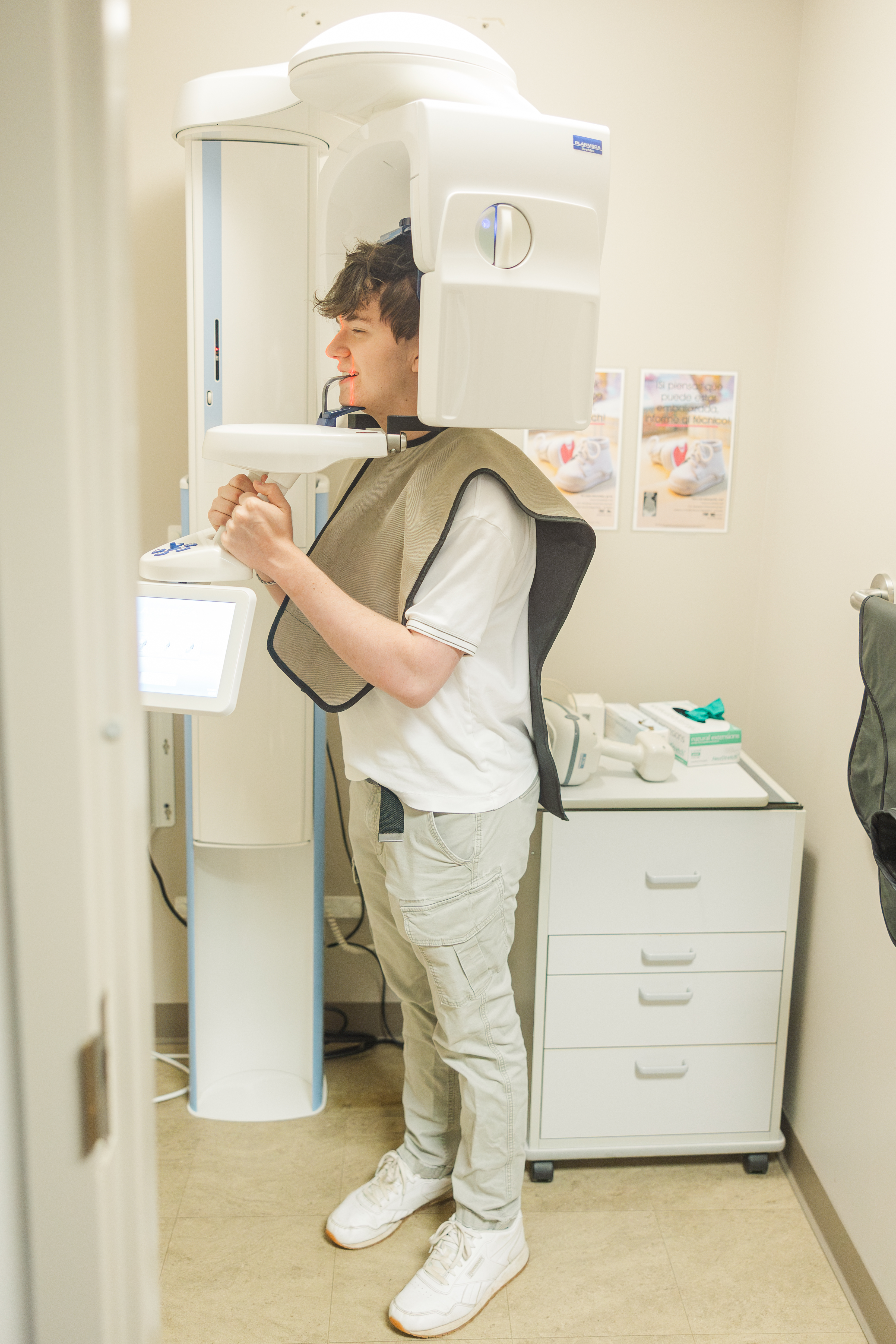Dental Implants

Dental implants are titanium posts surgically inserted into the jawbone to serve as artificial tooth roots, providing a stable foundation for replacement teeth. They are commonly used to help replace one or more missing teeth by supporting various prosthetic options, including individual crowns, bridges, or dentures. Dental implants mimic the function and appearance of natural teeth, offering improved chewing ability, speech clarity, and aesthetics compared to traditional tooth replacement methods. With proper care, dental implants can provide long-term stability and restore confidence in individuals with missing teeth.
Who Can Benefit From Dental Implants?
- Those missing a single tooth due to decay, trauma, or other factors can benefit from a single-tooth dental implant, which is a stable and permanent replacement option that does not compromise adjacent teeth.
- Individuals missing multiple teeth, whether in adjacent or non-adjacent areas of the mouth, can benefit from implant-supported bridges or partial dentures. These restorations of oral function and aesthetics preserve the remaining natural teeth.
- Patients missing all or most of their teeth in one or both dental arches can benefit from full-arch implant-supported dentures or fixed bridges. These provide comprehensive restoration and stability for improved chewing ability and speech clarity.
- Individuals seeking a long-term solution for tooth loss can benefit from their reliability and longevity. This is because dental implants offer unparalleled stability and durability compared to traditional tooth replacement options such as removable dentures or bridges.
- Individuals who are looking to preserve their jaw bone density after losing a tooth can benefit from dental implants. This is because dental implants in Flat Rock, NC, help preserve bone density and prevent bone resorption, which can occur following tooth loss. By mimicking the function of natural tooth roots, implants stimulate the surrounding bone tissue, maintaining oral health and facial structure over time.
The Dental Implant Procedure
Evaluation and Planning
The initial phase of the dental implant procedure involves a comprehensive evaluation and treatment planning process. During this stage, the dentist in Flat Rock, NC, will assess the patient's oral health, including the condition of the teeth, gums, and jawbone, using diagnostic tools such as X-rays, CT scans, and intraoral scans. The dentist at Upwards Dental will also consider factors such as the patient's medical history, lifestyle, and treatment goals to develop a personalized treatment plan tailored to their needs.
Implant Placement Surgery
Once the treatment plan is finalized, the surgical phase of the dental implant procedure begins with placing the implant posts into the jawbone, typically performed under local anesthesia to ensure patient comfort. The dentist will make an incision in the gum tissue to expose the underlying jawbone and then carefully drill small holes into the bone to accommodate the implant posts. The titanium posts are then securely placed into the bone, and the gum tissue is sutured closed around them. In some cases, temporary restorations may be placed to maintain aesthetics and function during healing.
Healing and Restoration
Following implant placement surgery, the healing and osseointegration phase begins, during which the surrounding jawbone fuses with the implant posts through osseointegration. This typically takes several months, when the patient's bone tissue grows and integrates with the implant surface, providing a stable foundation for the final restorations. Once osseointegration is complete and the implants are firmly anchored in the jawbone, the final dental restorations, such as crowns, bridges, or dentures, are attached to the implants, restoring function and aesthetics to the smile. Contact us today!
Types of Dental Implants
Endosteal Implants
Endosteal implants are the most common type of dental implant, often called "root-form" implants. These implants are surgically placed directly into the jawbone, serving as artificial tooth roots to support one or more replacement teeth. Endosteal implants are typically made of titanium, a biocompatible material that can be fused with the surrounding bone through osseointegration. Once the implant has integrated with the jawbone, a dental crown, bridge, or denture can be attached to restore function and aesthetics.
Subperiosteal Implants
Subperiosteal implants are an alternative option for patients with insufficient bone height or density to support endosteal implants. Unlike endosteal implants, which are placed within the jawbone, subperiosteal implants are placed on top of the jawbone but underneath the gum tissue. These implants consist of a metal framework that is custom made to fit the contours of the jawbone and support one or more prosthetic teeth. Subperiosteal implants offer a viable solution for patients with bone loss or anatomical limitations that disqualify them from undergoing traditional implant placement.
All-on-4® Dental Implants
The All-on-4® dental implant technique is a revolutionary approach to full-arch tooth replacement that offers a fixed, non-removable solution for edentulous patients or those with severely compromised dentition. This technique involves strategically placing four dental implants in the jawbone to support an entire arch of prosthetic teeth. By angling the implants for maximum stability and utilizing available bone in the anterior region of the jaw, All-on-4® implants provide immediate function and aesthetics with minimal surgery and recovery time.
Mini Dental Implants
Mini dental implants, also known as small-diameter implants or MDIs, are smaller in diameter than traditional implants and are often used in cases with insufficient bone density or space for standard implants. They can support single crowns, bridges, or dentures and offer a less invasive and more affordable alternative to traditional implant placement. While mini implants may not be suitable for every patient or every situation, they can be a valuable option for those seeking a quicker and less complex treatment.
Dental implants are a transformative solution for individuals with tooth loss, providing a reliable and aesthetically pleasing option for restoring oral function and confidence. Visit Upwards Dental at 777 S Allen Road, Flat Rock, NC 28731, or call (828) 595-9177 to discuss your options and embark on the journey towards a confident, healthy smile. Say goodbye to gaps and hello to a beautiful, functional smile with dental implants.
Location
777 S Allen Road,
Flat Rock, NC 28731
Office Hours
MONClosed
TUE - FRI8:00 am - 4:00 pm
SAT - SUNClosed
